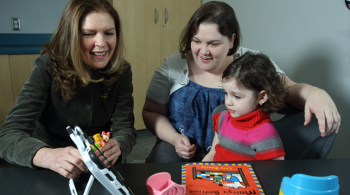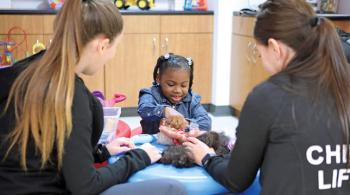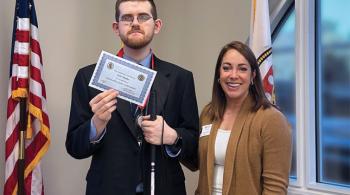BALTIMORE, May 13, 2024—Findings from the Kennedy Krieger Institute emphasize the critical importance of integrated care for children with epilepsy and co-occurring psychiatric issues, shedding light on the negative effects of fragmented care. Expertise on the issue has been published in Epilepsy Currents, a major medical journal that reaches thousands of practitioners nationwide.
Epilepsy is a neurological disorder that causes recurring seizures. The article explains how it is more complicated than other chronic illnesses when it comes to associated psychiatric symptoms. Conditions such as autism spectrum disorder, anxiety, depression, and attention deficit hyperactivity disorder are common in pediatric epilepsy, impacting 29% of children as opposed to 16% in those with other chronic medical conditions.
Dr. Jay Salpekar, Director of the Neuropsychiatry at Kennedy Krieger Institute, is the lead author of this research. He explains there is a separation between neurology and psychiatry in treating epilepsy due to perceived differences in underlying causes, treatment emphasis, and stigma surrounding mental health. He says this division stalls comprehensive care.
“Having epilepsy and psychiatric conditions and comorbidities treated separately can lead to fragmented care and negative outcomes for patients.” Dr. Salpekar said. “This includes disjointed treatment plans, inadequate seizure control, and even psychiatric symptoms going unrecognized or untreated.”
Key findings in the study include:
- The article reveals a rotating interaction between epilepsy and psychiatric conditions, emphasizing how each can exacerbate the other.
- Addressing psychiatric symptoms right away can greatly improve the lives of children with epilepsy, and it may even help control their seizures better.
- Combining antidepressants and anti-seizure medications may be a vital strategy in managing depression in children and adolescents with epilepsy.
The research calls for a shift towards an integrated, personal approach that considers the unique minds of pediatric patients. Dr. Salpekar emphasizes that when healthcare professionals collaborate simultaneously on a patient's care, they can enhance the well-being of children with epilepsy.
“It's time we create a standard in pediatric epilepsy care that seamlessly merges all of these perspectives," Dr. Salpekar said. "By embracing a more holistic treatment approach, we can improve the quality of life for these vulnerable patients and their families."
###
About Kennedy Krieger Institute:
Kennedy Krieger Institute, an internationally known nonprofit organization located in the greater Baltimore-Washington, D.C., region, transforms the lives of more than 27,000 individuals a year through inpatient and outpatient medical, behavioral health and wellness therapies; home and community services; school-based programs; training and education for professionals; and advocacy. Kennedy Krieger provides a wide range of services for children, adolescents and adults with diseases, disorders and injuries that impact the nervous system, ranging from mild to severe. The Institute is home to a team of investigators who contribute to the understanding of how disorders develop while at the same time pioneering new interventions and methods of early diagnosis, prevention and treatment. Visit KennedyKrieger.org for more information about Kennedy Krieger.















